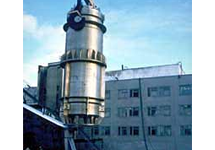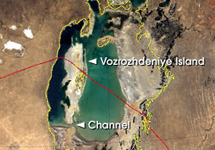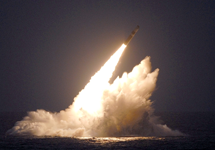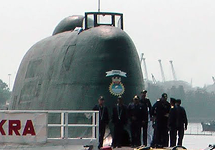The entire area has many difficulties in common but the way each deals with them varies.

Military neglects safety & accounting procedures of naval spent nuclear fuel.

Research on a Soviet-era biological weapons test site in the Aral Sea.

An announcement was given to procure 40 sea-launched ballistic missiles (SLBMs).

The leased submarines are expected to be armed with Club-S missiles.
Since the collapse of the Soviet Union in 1991, there have been frequent reports of illicit trafficking in fissile materials from the Newly Independent States (NIS).
November 7, 2001 Jonathan Tucker Testimony by Jonathan B. Tucker, Ph.D. Director, Chemical & Biological Weapons Nonproliferation Program Center for Nonproliferation Studies Monterey Institute of International Studies Washington, D.C. Office before the Subcommittee on International Security, Proliferation, and Federal Services of the U.S. Senate Committee on Governmental Affairs November 7, 2001, 2:30 p.m. Room 342, […]
Do the World Trade Center and Pentagon bombings represent a major US intelligence failure? Reply prepared by Dr. Phillip Saunders, Director, East Asia Nonproliferation Program By definition these attacks represent an intelligence failure, because the intelligence and law enforcement communities did not provide advance warning that they were coming. That said, it is extremely difficult […]
Attention has been brought to anthrax, a potential bioterrorist threat, due to recent cases of exposure and the tragic death of one individual in Florida.
Gaurav Kampani September 28, 2001 Safety Concerns About the Command and Control of Pakistan’s Strategic Forces, Fissile Material, and Nuclear Installations As the United States prepares to launch military operations in Afghanistan with support from Pakistan, questions about the safety of Islamabad’s nuclear explosives, fissile material stocks, and nuclear facilities have come to the fore. Pakistan’s military […]